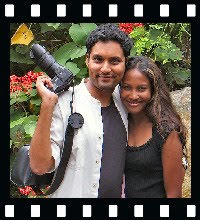 Mauritius was probably visited by Arabs and Malays in the Middle Ages. Portuguese sailors visited it in the 16th cent. The island was occupied by the Dutch from 1598 to 1710 and named after Prince Maurice of Nassau. The French settled the island in 1722 and called it �le de France. It became an important way station on the route to India. The French introduced the cultivation of sugarcane and imported large numbers of African slaves to work the plantations. The British captured the island in 1810 and restored the Dutch name. After the abolition of slavery in 1835, indentured laborers were brought from India ; their descendants constitute a majority of the population today. Politics on Mauritius was long the preserve of the French and the creoles, but the extension of the franchise under the 1947 constitution gave the Indians political power. Indian leaders in the 1950s and 60s favored independence, while the French and creoles wanted continuing association with Britain, fearing domination by the Hindu Indian majority. The 1967 election gave a majority in the assembly to Sir Seewoosagur Ramgoolam's proindependence Labour party. Independence was granted in 1968, and Ramgoolam became the first prime minister. Mauritius joined the Commonwealth of Nations and the United Nations.
Mauritius was probably visited by Arabs and Malays in the Middle Ages. Portuguese sailors visited it in the 16th cent. The island was occupied by the Dutch from 1598 to 1710 and named after Prince Maurice of Nassau. The French settled the island in 1722 and called it �le de France. It became an important way station on the route to India. The French introduced the cultivation of sugarcane and imported large numbers of African slaves to work the plantations. The British captured the island in 1810 and restored the Dutch name. After the abolition of slavery in 1835, indentured laborers were brought from India ; their descendants constitute a majority of the population today. Politics on Mauritius was long the preserve of the French and the creoles, but the extension of the franchise under the 1947 constitution gave the Indians political power. Indian leaders in the 1950s and 60s favored independence, while the French and creoles wanted continuing association with Britain, fearing domination by the Hindu Indian majority. The 1967 election gave a majority in the assembly to Sir Seewoosagur Ramgoolam's proindependence Labour party. Independence was granted in 1968, and Ramgoolam became the first prime minister. Mauritius joined the Commonwealth of Nations and the United Nations.
Sunday, March 12, 2006
 Mauritius was probably visited by Arabs and Malays in the Middle Ages. Portuguese sailors visited it in the 16th cent. The island was occupied by the Dutch from 1598 to 1710 and named after Prince Maurice of Nassau. The French settled the island in 1722 and called it �le de France. It became an important way station on the route to India. The French introduced the cultivation of sugarcane and imported large numbers of African slaves to work the plantations. The British captured the island in 1810 and restored the Dutch name. After the abolition of slavery in 1835, indentured laborers were brought from India ; their descendants constitute a majority of the population today. Politics on Mauritius was long the preserve of the French and the creoles, but the extension of the franchise under the 1947 constitution gave the Indians political power. Indian leaders in the 1950s and 60s favored independence, while the French and creoles wanted continuing association with Britain, fearing domination by the Hindu Indian majority. The 1967 election gave a majority in the assembly to Sir Seewoosagur Ramgoolam's proindependence Labour party. Independence was granted in 1968, and Ramgoolam became the first prime minister. Mauritius joined the Commonwealth of Nations and the United Nations.
Mauritius was probably visited by Arabs and Malays in the Middle Ages. Portuguese sailors visited it in the 16th cent. The island was occupied by the Dutch from 1598 to 1710 and named after Prince Maurice of Nassau. The French settled the island in 1722 and called it �le de France. It became an important way station on the route to India. The French introduced the cultivation of sugarcane and imported large numbers of African slaves to work the plantations. The British captured the island in 1810 and restored the Dutch name. After the abolition of slavery in 1835, indentured laborers were brought from India ; their descendants constitute a majority of the population today. Politics on Mauritius was long the preserve of the French and the creoles, but the extension of the franchise under the 1947 constitution gave the Indians political power. Indian leaders in the 1950s and 60s favored independence, while the French and creoles wanted continuing association with Britain, fearing domination by the Hindu Indian majority. The 1967 election gave a majority in the assembly to Sir Seewoosagur Ramgoolam's proindependence Labour party. Independence was granted in 1968, and Ramgoolam became the first prime minister. Mauritius joined the Commonwealth of Nations and the United Nations.
Subscribe to:
Post Comments (Atom)

No comments:
Post a Comment